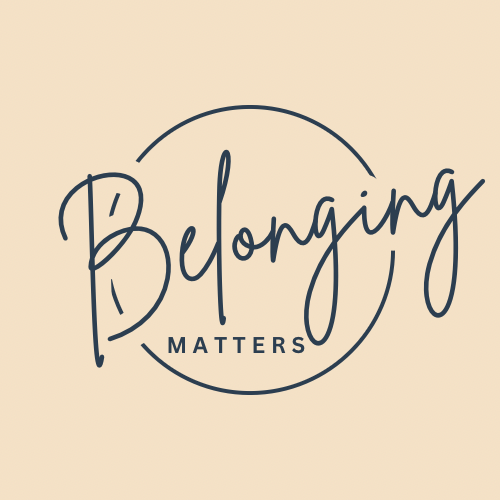When You Stop Fighting What You Feel: Acceptance and ACT for Social Anxiety Recovery
The Ache of Wanting Feelings to Stop
There’s a moment in therapy that I’ve seen countless times, when a client looks up and says, “I just want these feelings to stop.”
And if you’ve been on either side of that sentence, therapist or client, you know the ache underneath it. It’s not just about wanting anxiety or shame to disappear. It’s about wanting to finally feel safe inside your own skin.
For those of us who sit with clients every day, we know that’s often where the real work begins. Because everything in us is wired to avoid pain; to fight it, fix it, or numb it.
Acceptance asks something different.
It asks us to pause and turn toward what hurts instead of away from it.
And that can feel terrifying, because it looks like surrender.
However, it’s not surrender. It’s courage.
Understanding Acceptance in ACT
Acceptance and Commitment Therapy (ACT) defines acceptance as the willingness to experience what’s already here: thoughts, sensations, and memories, without needing them to change before we live our lives.
That’s often the opposite of what social anxiety teaches:
“I have to be perfect, fully prepared, and completely calm before I can face what’s coming.”
Through the shame lens, acceptance becomes even more radical.
It’s the moment we say:
“Maybe I don’t have to earn the right to feel this.”
“Maybe I don’t have to fix myself to belong here.”
The Paradox of Emotions and Acceptance
We’re not always anxious, sad, or happy. Emotions move in waves.
Yet, when we try to force certain feelings out, we usually end up amplifying the very distress we’re trying to escape.
The harder we resist emotions, the more we get pulled into the tension of resistance itself, what is sometimes called the panic paradox.
Acceptance is learning to let all feelings exist without fighting them, not because we enjoy discomfort, it’s because that’s how we learn from it.
When we allow emotions to move through naturally, they pass on their own, without control, without effort.
That’s what recovery looks like.
Not one endless calm season, it’s a rhythm, moments of peace, moments of struggle.
Acceptance is what allows those seasons to exist. Without it, we stay stuck waiting for perfect conditions to live.
Acceptance in Social Anxiety
For clients with social anxiety, acceptance can be transformative.
Social anxiety says, “I can’t go unless I’m confident.”
Acceptance says, “I can go, even if I’m afraid.”
Social anxiety says, “Once I stop feeling ashamed, I’ll finally be good enough.”
Acceptance says, “I can belong, even with shame in the room.”
A Therapist’s Journey with Acceptance
I once worked with a therapist-in-training who was brilliant and deeply empathic, and terrified of supervision.
Each week, they rehearsed every word they might say before our meeting. If I asked how they were doing, they froze. They weren’t afraid of feedback; they were afraid of being seen.
We spent months trying to calm their nerves until one day I asked,
“What if the goal isn’t to feel calm before supervision? What if the goal is to show up with your anxiety, not without it?”
That question changed everything.
Gradually, they began naming their anxiety out loud, breathing through it, and realizing it didn’t ruin them. It actually deepened our connection.
Somewhere in that process, they began to smile more, not because they were “fixed,” because they realized they were never broken.
That’s what acceptance does.
It doesn’t erase fear; it expands capacity.
It teaches us that our internal weather doesn’t have to dictate our day. It’s just a passing storm, not the whole climate.
Acceptance shows our clients and ourselves that we can have a full human experience without disqualifying ourselves from belonging.
The Power of Psychological Flexibility
In ACT, acceptance is one of six core processes that create psychological flexibility; the ability to feel deeply and still move toward what matters.
From a shame-informed perspective, acceptance is the antidote to self-rejection.
Shame whispers, “Don’t feel that. Don’t show that. Don’t be that.”
Acceptance whispers, “Even this belongs.”
The Role of Willingness in Acceptance
Acceptance isn’t about liking our pain. It’s not passive or weak.
It’s willingness; the quiet strength to say,
“This is what’s here right now. I don’t have to love it, and I can make room for it.”
When we can stay present long enough, something surprising happens.
Moments of peace begin to appear.
Not perfectly, not predictably, just enough to remind us that recovery is not a single event.
It’s a series of moments and seasons where we remember that suffering is part of the story, not the whole story.
Acceptance allows progress without perfection.
It’s what lets belonging take root, even in the middle of discomfort.
Final Thoughts on Acceptance and Belonging
If you’ve been trying to fight your way out of social anxiety, maybe it’s time to stop fighting yourself.
Notice when you tense, when you judge, when you withdraw; and instead of pushing away, try softening.
Take a breath.
Name what’s here.
Remind yourself: you’re allowed to feel afraid and still show up.
All feelings are okay. Not all behaviors are.
That’s healing, not fearlessness; instead, it’s wholehearted participation.
Acceptance isn’t the end of the story. It’s the doorway.
It’s what lets us feel life again, connect again, and belong again.
Not because everything’s perfect, because we finally stopped waiting to be.
Conclusion and Further Resources
If you’re a therapist and this resonates with you, I explore these principles more deeply in my CEU training:
Master the Shame Lens: A Trauma-Informed Approach to Treating Social Anxiety Using ACT. Click Here
If you want a deeper dive, you can get all 7 of the free ACT for social anxiety series by here. ⬇️
Take care, and I’m really glad you’re here.
Dr. Matt
